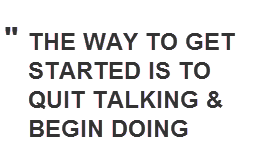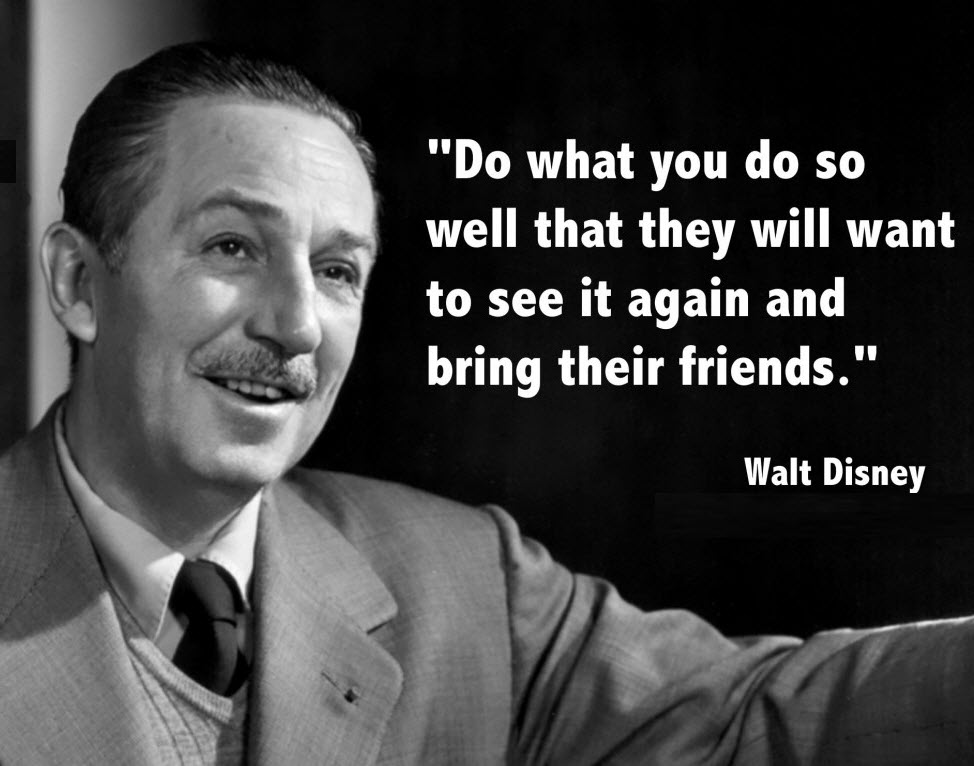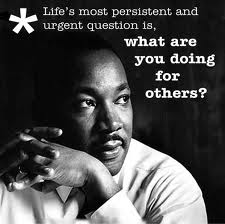
 Just the other week, I had the distinct pleasure of joining Dreamit Venture’s kick-off of their spring 2014 class. The roster of incredible teams, including Cheggin, CollaborateCloud, eyeQ, Notorious, Octane Lending, Stereo, Swan, TeleCog, and UserApp, set me wondering what role dreams play in one’s success as an entrepreneur.
Just the other week, I had the distinct pleasure of joining Dreamit Venture’s kick-off of their spring 2014 class. The roster of incredible teams, including Cheggin, CollaborateCloud, eyeQ, Notorious, Octane Lending, Stereo, Swan, TeleCog, and UserApp, set me wondering what role dreams play in one’s success as an entrepreneur.
Thinking more about the shifting role of capital and the emigration of innovation from Silicon Valley, it’s hard not to turn to all of the startup dreams I’ve heard and internalized over the years. Doing that, it’s impossible to avoid asking if our dreams are changing; or rather, if our expectations, in taking risk with our professional lives, haven’t grounded our dreams in reality. Why impossible? I’ll admit, what spurned me to write this today was a series of conversations with new startups, each with the same answer to what I consider the critical question entrepreneurs need to more eloquently elucidate than any other – Just that: Why?
Article Highlights
To Make Money
I can tell you right now, if you’re struggling to raise capital, if you’re looking for exceptionally experienced and talented individuals to support you in joining your team without compensation, or as an advisor, your dream had best not be to make money.
“We see a market opportunity.”
“There is an opportunity to serve customers.”
“No one else is doing it.”
Such responses make me shudder. You are building a business, not a venture. You are starting to make money, not starting a dream. You should focus on customers and making a living, not change the world. And therein is the subtle difference, those that dream are worth investment as people (customers, partners, press, investors, etc.) are inherently drawn to dreamers whereas mere needs are drawn to businesses.
If entrepreneurs’ dreams are indeed, increasingly, grounded in reality, is that a good thing? Is that reality what leads to great success or, as we’ve seen with Ford, Page & Brin, Winfrey, Zuckerberg, Gates, Edison, Jobs, Branson, Carnegie, and so on, does your success need to dream?
I had such a good time translating to startup wisdom the core tenets of Pixar’s “rules” for movie making that it occurred to me I had to go to the source of dreams. Who knows better about making dreams come true than Walt Disney??
When You Wish Upon a Star

A name so iconic and influential, it’s hard to imagine anyone who isn’t familiar with and touched by Disney’s magic.
In just a short list of his accomplishments, on the off chance that you aren’t familiar, we see theme park visionary, animator, cartoonist, producer, director, screenwriter, story teller, and voice actor. Why so many different things and wherein are the practical roles of CEO, CMO, or CTO??
Long before what we know, Walt and Fred Harman, his first employee, secured a deal with a local theater to screen their cartoons. Ever heard of them? Laugh-O-Grams.
Through their success, he was able to acquire his own studio and hire a number of animators. Early customer validation and traction made success seem inevitable. But no, studio profits were insufficient to cover salaries paid and he, poor with money, led the studio into bankruptcy. Failure.
Disney and his brother Roy pooled their money and set up a cartoon studio in Hollywood and started to rebuild. Their distributor requested and put into distribution through Universal Pictures, Oswald the Lucky Rabbit, (if you’ve played Disney’s iconic video game Epic Mickey, you know who I’m talking about). With their success, the Disney studio expanded and Walt re-hired Harman as well as the other Laugh-O-Grams animators. One of the hires was a man by the name of Friz Freling, whom you might better know for his work with Merrie Melodies; the creator of Bugs Bunny.
Shortly thereafter disaster struck again when Disney lost the rights to Oswald, needing to replace him, Disney turned to a pet they had at Laugh-O-Grams for inspiration and Mortimer was born.
(wait… what?)
His team reworked the sketches made by Disney, and the voice and personality were provided by Walt; Disney gave him his soul. Eventually, the mouse renamed “Mickey” by his wife and the rest is history.
The very story of what many entrepreneurs seem to avoid… intellectual property, mismanaging money, dealing with competitors, partnering with threats… all challenges that threw disaster after disaster at Disney. And yet, a glimpse of the magic in giving Friz Freling his start.
What made Disney’s dreams come true? Determination? Capital? No. Vision?
 Excerpts from the book, The Quotable Walt Disney
Excerpts from the book, The Quotable Walt Disney
Provide a promise, not a product
Legend has it that Disney was watching his daughters ride a carousel when he came up with the concept for Disney World. He noticed that amusement parks and fairs were littered and poorly organized; that the employees were generally rude.
His wife asked why he’d want to build an amusement park, “They’re so dirty.” Walt replied, “That’s the point. Mine won’t be.”
From day one, Disney focused on “the experience” as a key component to increasing the value of its parks. More importantly, the story behind the inspiration for his dream was not merely that he could do it better, but that what was the norm of the day was wrong.
Always exceed customers’ expectations
Disney was more critical of his creations than anyone else could ever possibly be. A relentless perfectionist, with a keen eye for detail, Disney often forced projects to go over budget (imaging doing that as a founder) and past deadline because he wasn’t satisfied.
Always be testing, never be satisfied, constantly optimize and improve.
Pursue your passion, and the money will follow
“Money will follow” and it does when you are pursuing your real passion. Consider then what that atypical answer to why, says to those to whom you’re explaining your startup… to make money? If you’re going to make money, you don’t need mine.
Disney went bankrupt more than once, leveraging everything he had in order to build his studio, his films, and his dreams. The more profit one project yielded, the bigger the next would be. His vision was constantly growing, and he used whatever capital he had to evolve further. His films and theme parks were labors of love, built to revolutionize an industry, rather than maximize profits.
Stay true to your company’s mission and values
Famous for saying, “I hope that we never lose sight of one thing – that it was all started by a mouse,” decades later, Mickey Mouse remains the crown jewel of the Disney franchise. A constant reminder that the company has strong roots and it embraces American values: it all started with something as small and insignificant as a mouse; and never lost sight of it.
Differentiate your offer
Employees are called “associates,” visitors are called “guests,” designers are called “Imagineers.” Every facet of Disney’s operation is unique. The experience of being at a Disney theme park or resort is all about creating for guests a dream – where the attention to detail and personal service is just as memorable as the attractions themselves.
Lead by example and delegate
Walt Disney was the first to sketch Mickey as well as several other iconic characters. Early on he voiced many and provided the inspiration for Disney’s early animated films and features. But as he built the studio, and in turn the Disney empire, he hired those understood his vision and trusted them to take the helm.
By the time Walt broke ground on Disney World, he hadn’t drawn a character for decades. He built a strong foundation and developed self-reliant managers and employees who embraced his vision. That allowed him to turn his attention to even bigger dreams, while the company and its employees continued to prosper.
Outside of exceeding customer expectations, to this point in his success, beyond the passion and dreams, it was all about the right team.
Defy convention
Buck the odds and ignore the critics. Whether show biz insiders telling him no one would ever sit still for a feature-length animated film, or others saying he was crazy for buying acres and acres of murky swampland in central Florida, Disney always trusted his instincts first (whoa, not customers??).
Leave behind something to grow
Disney World didn’t even open its gates until five years after Walt Disney’s death. Disney himself said, “Disney Land is something that will never be finished, something I can keep ‘plussing’ and adding to. I just finished a live-action picture. It’s gone. I can’t touch it. I want something live, something that will grow. The park is that.”
While Disney has diversified in a number of ways, 50 years later, Bruce Jones, Programming Director, Disney Institute is still exploring the power of vision at the company that started with a mouse and makes dreams come true.
The Day for Dreams
 As I write this, I didn’t fail to notice that it’s Martin Luther King Day, and I wonder if, subconsciously, I wasn’t motivated to get this written for the very reason that outside of Disney, the man who might most embody and inspire us to dream, is King.
As I write this, I didn’t fail to notice that it’s Martin Luther King Day, and I wonder if, subconsciously, I wasn’t motivated to get this written for the very reason that outside of Disney, the man who might most embody and inspire us to dream, is King.
“If you can’t fly then run, if you can’t run then walk, if you can’t walk then crawl, but whatever you do you have to keep moving forward.”
There are a couple of quotes that so move us and sound as though written out right for entrepreneurs; but it was King’s call to measure oneself that struck me to the core, as it means so much to me professionally as it does personally, “The ultimate measure of a man is not where he stands in moments of comfort and convenience, but where he stands at times of challenge and controversy.”
Challenge and stir things up.
Today too, Dreamit announced the opening of the application process for their New York class; and while not here in Austin, I hear they know a thing or two up in New York. Besides, if it’s a chance to see your dreams come true, get going.



Interesting post.
Confirms a theory I have about “right” vs “wrong”; that there is no such thing, really. Everyone does, and believes in, different directions, and it’s only “right” or “wrong” to each their own.
In this case, your message suggests that “your dream best not be to make money”.
And, the responses that often make you shudder are:
“We see a market opportunity.”
“There is an opportunity to serve customers.”
“No one else is doing it.”
Yet, Walt Disney started Disney World because all the other amusement parks and fairs were dirty and rude; and so his simply wouldn’t be.
He seems to have “saw a market opportunity” to “serve customers” like “no one else is doing.”
So he told his wife anyway…
I think it’s many people’s passion and dream to make money. Maybe THAT particular dream being fulfilled is called “serial entrepreneurship” where one satisfies the need to recognize a market, turn a profit, and hand it off as a completed venture.
That in itself is a dream, yeah?
Certainly though I agree not to chase money as a means to fulfillment; but l still believe “chasing money” over and over can be someone’s dream.
Spot on Shawn, there is NO right or wrong; certainly, my goal was to be thought provoking to help people realize that. IF you’re in it to build a business, make some money, and be happy, you can certainly be successful… look at Dell.
But consider that raising money, attracting a team at no cost, etc. is probably much more difficult as people chase dreams. If you are in it to make money, then you should be doing that and the fact that you’re not (yet), is a red flag that you are failing. Or rather, it helps potential supporters avoid risk by saying, come back when you get more customers (how often have you heard that??). If/when you’re making money, why do you need mine??
It’s not wrong; rather, entrepreneurs need to consider the implications of WHY they are doing what they are doing. It makes me shudder because of my personal belief; I work for startups that will disrupt the world. When I ask you why you’re doing that, and you don’t have a vision/passion/dream, you aren’t going to change the world, you’re going to build a business – even perhaps, a huge one.
for sure.
yeah, I wasn’t rebutting, just adding a little tiddy bit.
good read.
I’m a total dreamer, with Disney, and in brief, this was a hugely inspiring piece!
And sure, I’d also like to make Big Money. Wouldn’t we all? But like Buffett, I hope ultimately to invest the bulk of it in others in hard scrabble and farflung parts of the globe, who cherish dreams of entrepreneurship yet are struggling under the burden of the simple daily effort to secure clean water, put food on the table, and maybe get a decent pair of shoes on their feet. That’s my vision, anyway, for what I’d like to do with the moolah I make. And I think everyone who entertains the idea of accumulating a fortune also has some sort of vision beyond a pile of gold bricks or green backs in the bank. So re: Shawn’s point, I guess I would challenge him a bit more. I’ve never in my life met a person either on their way to or currently rolling in boat loads of dough (and living in NYC for 20+ years, I’ve met a great number of them) who, at the end of the day would say, “Hey, don’t make this more complex than it really is; all I ever really wanted was to make mucho dinero.” There’s inevitably something more, if only some deeper and as yet unspoken value, beneath the money ball “dream” that the person is seeking to fulfill. Wealth is but a means to realizing some other, deeper, perhaps (though rarely) unconscious aim.
Regardless, thanks a million for this snappy Think Piece, Shawn!